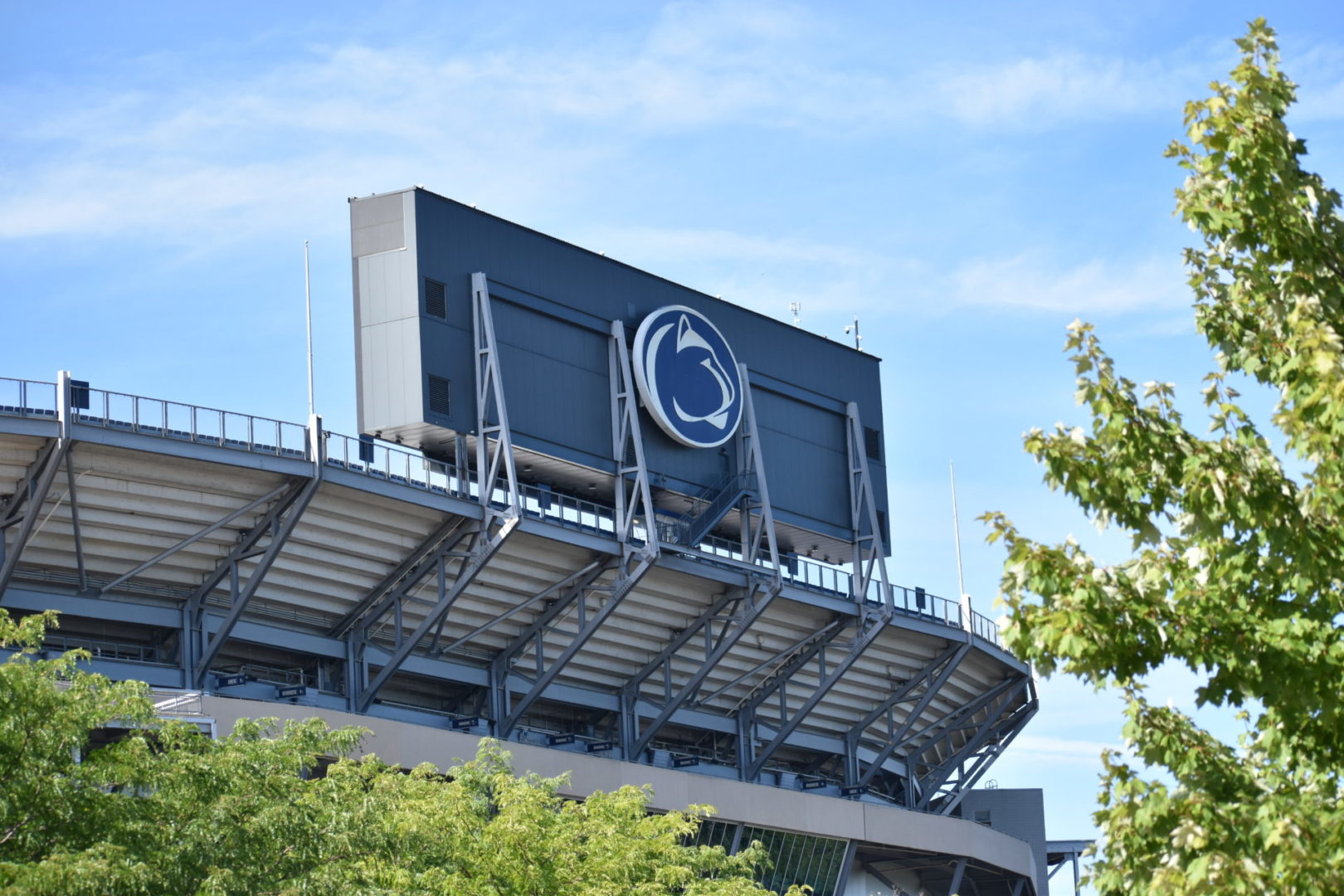Attorneys for Penn State Milton S. Hershey Medical Center have asked a court to overturn a jury’s verdict that awarded $5.25 million to a former Penn State football team doctor.
The motion to vacate or modify the verdict, filed in Dauphin County Court, alleges that Dr. Scott Lynch failed to establish his claim of wrongful discharge against the medical center and Dr. Kevin Black, accusing Lynch of using the lawsuit as a “proxy war” against the Penn State athletic department.
Lynch filed the lawsuit in 2019, claiming that he was removed from the role of Penn State’s director of athletic medicine and orthopedic physician for the football team because of clashes with coach James Franklin over player medical decisions.
Franklin, two athletic department administrators and the university were dismissed as defendants in 2020 after a judge ruled Lynch failed to meet the deadline for whistleblower claims. (Lynch’s attorney filed a motion in Superior Court on Tuesday appealing that decision.)
After a seven-day trial in May, a Dauphin County jury awarded Lynch $250,000 in compensatory damages and $5 million in punitive damages.
Black was Lynch’s supervisor and removed him from the athletic department positions, though Lynch continues to work for Penn State Health as an orthopedic surgeon. Lynch claimed he was removed because Franklin had improper influence over his supervision.
He then reappointed to the roles Dr. Wayne Sebastianelli, who the defendants’ attorneys wrote is “a better qualified and more experienced orthopedic surgeon who specializes in athletic medicine and lives and practices medicine in State College.” Lynch lived in Hershey and routinely transported student-athletes there for medical care that could have been provided in State College, according to the filing.
Lynch’s claim of wrongful discharge, the attorneys wrote, was based on a narrow exception to the at-will employment doctrine that can only be used when a public policy of the commonwealth has been violated, which requires proof the defendants required him to commit a crime, prevented him from complying with a statutorily imposed duty or terminated his employment in violation of a statute.
The claim of a public policy violation was “a ruse to tell a conspiratorial narrative that had no basis in fact” and had no connection to the hospital or Black, the attorneys wrote.
Lynch’s attorney offered no testimony, exhibits or reference to in opening and closing statements public policies that could have been violated, according to filing.
“In fact, the real intention was obvious — Plaintiff sought to wage a proxy war against PSU and its Athletic Department, neither of whom were defendants,” the attorneys wrote.
Lynch instead was “permitted to introduce inadmissible and irrelevant evidence,” designed “to confuse and mislead the jury,” according to the motion. Specifically, Lynch made hundreds of references to NCAA bylaws and Big Ten standards that are not Pennsylvania laws or doctrines, despite a ruling in 2020 that they could not underlie a public policy claim.
The defendants’ attorneys wrote that there was no evidence or allegation that any athlete was harmed by the conduct of the medical center or Black. None of Lynch’s medical decisions “were ever changed despite perception of alleged pressure by PSU Athletics,” according to the motion.
The hospital and Black are asking for the court to enter a judgment notwithstanding the verdict, or alternatively, for a significant reduction in the punitive damages, which the called “arbitrarily excessive” and inappropriately applied for actions they did not commit. Courts have previously determined that similar punitive damages — 20 times the compensatory damages — “likely would not withstand constitutional scrutiny,” the attorneys wrote.
Oral arguments are scheduled for Aug. 29 at the Dauphin County Courthouse.



